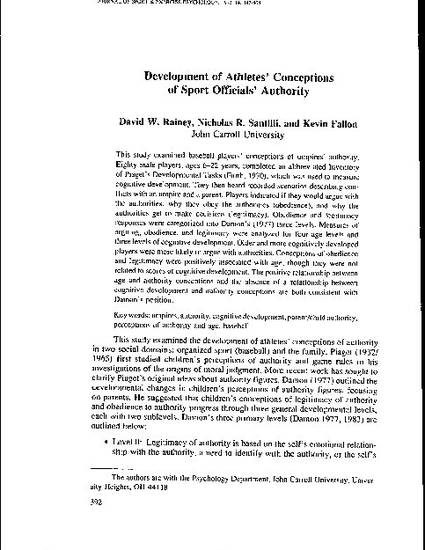
This study examined baseball players' conceptions of umpires' authority. Eighty male players, ages 6-22 years, completed an abbreviated Inventory of Piaget's Developmental Tasks (Furth, 1970), which was used to measure cognitive development. They then heard recorded scenarios describing conflicts with an umpire and a parent. Players indicated if they would argue with the authorities, why they obey the authorities (obedience), and why the authorities get to make decisions (legitimacy). Obedience and legitimacy responses were categorized into Damon's (1977) three levels. Measures of arguing, obedience, and legitimacy were analyzed for four age levels and three levels of cognitive development. Older and more cognitively developed players were more likely to argue with authorities. Conceptions of obedience and legitimacy were positively associated with age, though they were not related to scores of cognitive development. The positive relationship between age and authority conceptions and the absence of a relationship between cognitive development and authority conceptions are both consistent with Damon's position.
Available at: http://works.bepress.com/david_rainey/1/
